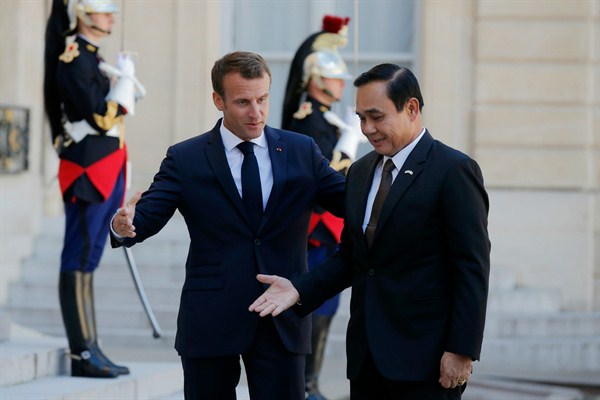More than four years after Thailand’s military seized power in a coup—the 19th coup or coup attempt since the end of absolute monarchy there in 1932—the country still seems far from a return to civilian rule. Since his putsch, junta leader Prayuth Chan-ocha has repeatedly promised that elections will be held, only to put them off again and again. Most recently, the junta allowed political parties to register earlier this year and suggested that new elections would be held by February 2019 at the latest. However, in recent weeks the military has again waffled on that date, and is now saying that elections could be held next May, or possibly later.
Yet even as Thailand’s junta digs in, Prayuth, who was appointed prime minister by a hand-picked, military-backed legislature in 2014, has been welcomed in many leading Western democracies. From Europe to Australia to the United States, countries have largely dropped their efforts at pressuring the Thai government, even while Thailand’s political crisis stretches on indefinitely.
Many democratic states took a relatively harsh line toward Bangkok immediately after the coup, which, after all, overthrew an elected government. Despite its many flaws, that civilian administration, led by then-Prime Minister Yingluck Shinawatra, had tried to hold parliamentary elections in early 2014 to prove its legitimacy, but was essentially blocked by anti-government—and often pro-military—protesters. While the downturn in global support for democracy has certainly led people in some states to revisit the idea of military rule, Thailand is still the biggest economy in the world ruled by the armed forces—an outlier even in a world where democracy is faltering.

